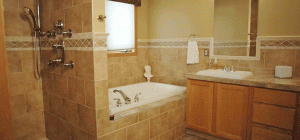If you are considering purchasing a new kitchen quartz worktop, and you’ve done any research into the issue at all, you will no doubt have heard about the ongoing debate between quartz and granite. Of course, there are other options out there, such as marble to name just one, but these two big-hitters are certainly the dominant forces in the market, and that means making a choice between the two.
Quartz and granite are both two natural stones, and whilst they have a few similar properties, they also have several properties belonging to each other, which make them stand apart. If you’re confused, this article should help clear up the mystery a little, and help you choose the right one for you.
 We should mention before we go on however one little fact – there is no work surface which is better than the other, because it all depends on your personal requirements and budget. The bottom line is that you should shop around and weigh up the pros and cons of each for you, and not listen to anyone who says quartz is better, or vice versa.
We should mention before we go on however one little fact – there is no work surface which is better than the other, because it all depends on your personal requirements and budget. The bottom line is that you should shop around and weigh up the pros and cons of each for you, and not listen to anyone who says quartz is better, or vice versa.
The pros and cons of quartz
Quartz is a very strong stone, in fact it is one of the strongest known to man. For this reason, quartz is very hard wearing and strong, whilst also being flexible in terms of colour options available. Quartz is also much easier to work with during the installation, which cuts down on the possibility of damage at the time and in the future.
Quartz is non-porous and that means it doesn’t absorb liquid, doesn’t stain, and doesn’t harbour bacteria, whilst also not needing to be sealed after the initial installation process. For this reason, quartz is easy to maintain and easy to clean, making it a very hygienic stone.
The downsides? If you keep your countertop in direct sunlight then you may find that over time it discolours, and therefore you need to think about where you place your work surface. The only other real downside is that you will see a visible seam on the stone, but if you choose a more patterned stone, this will be less visible overall. You will have a very large choice of colours and patterns available, and you could see this as a pro or con, depending on which way you look at it!
The pros and cons of granite
Granite is a very natural stone, and that means it looks very attractive in any type of kitchen. Whilst this stone isn’t as strong as quartz, it still packs a punch, and is very durable overall. Granite can chip or break if it isn’t looked after, but you would need to really crack it to cause damage. Granite is also not stain proof, unlikely quartz.
Every single slab of granite is unique, because it has its own veins running through it, meaning one stone will never be the same as another. Granite is also available in many natural-looking colours, although doesn’t have the same high gloss finish that quartz will usually always have.

The downside is that a granite countertop will need to be sealed more than a quartz one, usually every year after installation, and that is because granite is porous, and therefore it can absorb bacteria and liquids – regular sealing cuts out this problem. We mentioned seams with quartz, and the same thing applies to granite too, however the veins of the stone should help it to blend in.
So, as you can see, there isn’t a major difference between the two stones, and it really depends on whether you favour porosity over non-porosity, colours over more natural options, or the problem of sealing more regularly. Both stones have fantastic advantages to them, and provided you shop around and find the best deal for you, your work surface should last you for a considerable length of time after installation, making it a fantastic investment for your home. Take the time to really find the best option, and make sure you listen to any advice about maintenance after the buying point, because having to replace a worktop too early is not only a time consuming issue, but a very costly one too.







